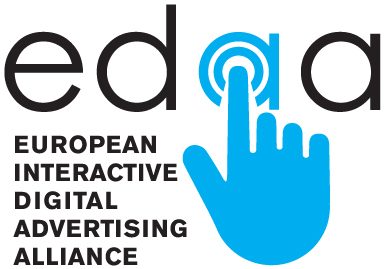
The 2021 EDAA Summit: Choices for a better future was an event that brought together industry, regulators, and users in a hybrid format to discuss the future of self-regulation in the online advertising ecosystem. In a series of blogs, Federica Detomas, our Communications and Projects Assistant, asks the speakers a series of questions posed by the audience that were left unanswered during an afternoon of packed content.
The last panel of the day covered the companies’ perspective regarding their plans to tackle the challenges and seize the opportunities anticipated from the future. We had the pleasure to have as our speakers Alan Chapell, President, Chapell & Associates, Vincent Potier, Founder, London Digital Ventures Limited and Robert Blanck, General Manager E-Commerce & Advertising, Axel Springer. The session was moderated by Ruth Boardman, Partner at Bird & Bird.
Federica: For those that couldn’t join us but would be interested to know more, could you sum up your key messages on the day in just one or two sentences?
Vincent Potier: We’re 3.5 years in since the GDPR came into force and the world has changed for the ad tech industry. A few interesting things have happened, especially over the past two years: a) the GDPR and its brand of data protection has taken over the world, everywhere new legislations are appearing, CCPA, CPRA, LGPD, PDPA, APPI, PIPL etc. As a result, the browsers have given up on third party cookies, and once again the industry will have to adapt soon. It’s going to be painful, it will be turbulent, but at the end things will be fine, and advertising dollars will continue to flood into programmatic. It will just be different, way less cookies, even more attribution challenges, and probably the end of single-minded user-level targeting.
Federica: Mr Potier, what is an ideal end-state from a company perspective, and what would be considered a successful transition to it?
Vincent Potier: The GDPR requires companies to implement privacy by design. In these times, you need to implement flexibility by design. Build the systems and processes which will allow your company to react to new or unforeseen occurrences or situations as soon as possible.
Federica: What will differentiate those who prosper from the companies being left behind?
Alan Chapell: I’d like to see companies do more with less when it comes to data. There hasn’t been enough investment in this area.
Robert Blanck: I strongly favour a diverse online media offering, yet there is no silver bullet whereby publishers can simply ‘plug-in’ to ad technology solutions – as thought in the past – to solve their problems. We need to give a good chance to the smaller operators who don’t benefit from strong first-party data and reach. To not be left behind, publishers must have a voice in industry-wide discussions; however, it’s really hard for smaller publishers to have a voice when they don’t have the same resources and tech people to contribute, whilst ad tech is building new solutions. Several forums are completely dominated by big players, making it a tough challenge to be inclusive and get broader contributions to somehow change or build this ‘new world’. Looking at the structures in place today to move us to that future, those who prosper will be the existing largest players.
Federica: Mr Chapell, we know what the timeframes looked like a few months ago. What do timeframes look like for companies now, given recent developments (i.e. Google’s apparent slowdown of third-party cookie deprecation)?
Alan Chapell: My advice is to worry less about time frame for third-party cookie depreciation and assume that it will happen by the end of 2022.
Federica: Mr Blanck, what pitfalls should companies avoid when thinking about data privacy in this new landscape?
Robert Blanck: I still see a lot of companies and publishers who think that privacy is a legal problem. It’s not. It’s the combination of legal, tech, product and business, all together. It’s challenging because it takes a lot of resources. For us publishers it’s also a tough challenge on revenues. The pitfalls lie in not bringing the right teams together, thinking options through, and putting this as the main priority on the roadmap. However, for many publishers it is tough to avoid these pitfalls. We manage to navigate these at Axel Springer, but has taken us a lot of resources.
Federica: Any disruption brings a different balance in an ecosystem. What, if any, would be the significant shifts in leverage and power across the industry?
Alan Chapell: It will be interesting to see how big of a distraction the various anti-competitive regulatory activity will have on the Internet Giants. Will they be distracted (think MSFT in the late 90’s / early 2000’s) and miss out on the next big thing?
Federica: Mr Blanck, what key advice can be offered to companies operating across the digital advertising sector?
Robert Blanck: Working together and working inside frameworks and inside standards is the key, because only standards bring scale to the industry and offer scale for publishers, advertisers and intermediaries all together.
Federica: How optimistic are you both about growth and innovation in the data-driven online advertising space looking forward?
Vincent Potier: I’m always optimistic. There will be consolidation in the industry, and there will be a reshuffling of power in the value chain, but those who innovate and understand the market’s unique dynamics will see success.
Alan Chapell: I’m still bullish on data driven advertising. As someone who’s been involved in adtech privacy since 2003, I’ve seen the shift in adtech over the past two decades from more of an audience creation model into more of an advertiser and publisher enablement model.
Robert Blanck: I see that there is a chance to be optimistic, but we need close dialogue with regulators, especially in the context of ongoing political pressure to stop targeted advertising; and we also need more guidance, given different interpretations of GDPR across Europe. I also feel very grounded when thinking about prospects, especially since publishers have this already tough situation with exploring different business models and diversifying their revenue streams. There is a lot of pressure on publishers, yet there is also an opportunity to get more from their inventory and from their first party data. So, I have some optimism, but I wouldn’t say that everyone can or will embrace the changes on the horizon. It’s a really tough time for every publisher and I see a lot of publishers saying they are overwhelmed and that the complexity is too high for them.
Federica: Mr Blanck, how can EDAA’s brand of self-regulation help companies in this new context?
Robert Blanck: EDAA has a very good and interesting role. They can do a lot about transparency, about in-ad transparency, what online advertising is all about, there could be standards in combination with other consent mechanisms where you can say why you see a certain ad. EDAA does and can do a lot in this context. There are great opportunities to build on what you are currently doing, but it’s all about tech and product people coming together, and about working collaboratively across all the different associations. There are so many competing interests that we see in the market and this is taking hold in the discussions. There needs to be more interest in cooperating and that’s a real challenge.
Federica: Thank you all and looking forward to seeing you again, either on stage or in the audience, on November 15 2022 for the next edition of EDAA Summit.
A word from the moderator, Ruth Boardman:
The panel started by noting that privacy concerns, reflected in the GDPR and similarly inspired legislation, have driven the action by browsers to block third party cookies. All panellists concurred that, while there is continuing interest in online advertising, there is significant uncertainty as to how the market will develop. The concept of “flexibility by design and by default” was suggested, as a complement to the GDPR’s “privacy by design and by default”.
The panel emphasized the value of industry standards. Industry standards, such as those promulgated by the EDAA, can be effective in providing greater transparency about how and why ads are placed. Standards can also facilitate continued involvement by smaller players, which is important to ensure continued innovation, competition and access to diverse content.
Watch the Summit 2021 Aftermovie and the interviews, and browse through photos from the event here.






